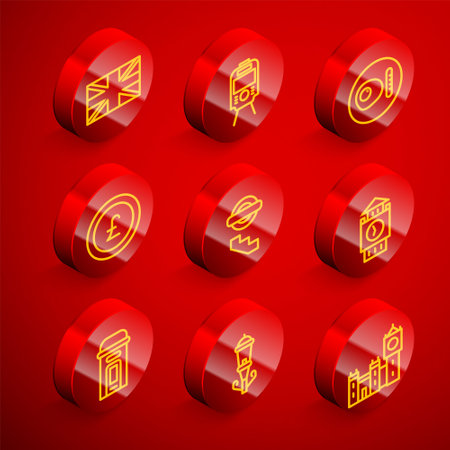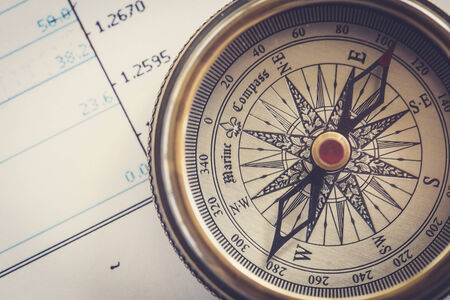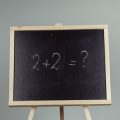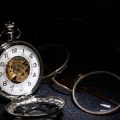The Digital Rise of Numerology in the UK
Once the preserve of candle-lit parlours and whispered consultations, numerology has undergone a remarkable transformation within the British cultural landscape. In recent years, the ancient practice of interpreting life’s meaning through numbers has leapt from dusty esoteric corners into the vibrant world of online platforms. This digital migration has been particularly pronounced in the UK, where a growing number of Britons are turning to virtual numerologists for insights into love, career, and personal growth. What’s driving this surge? For many, the allure lies in accessibility and convenience—no longer must one search out an enigmatic mystic in a backstreet shop; a personalised reading is just a click away. Yet it goes deeper than that: as British society navigates uncertainty and fast-paced change, there’s a renewed appetite for tools that offer guidance or reassurance. Online numerology promises not only answers but also a sense of connection—both to ancient wisdom and to like-minded seekers across the country. As we examine this digital renaissance, it becomes clear that numerology’s appeal now rests on its ability to blend tradition with technology, creating something uniquely resonant for a modern UK audience.
What’s Really Behind Your Online Numerology Reading?
If you’ve ever typed your name and birthdate into an online numerology calculator, you’re certainly not alone. But have you ever stopped to wonder what’s actually happening behind the screen? The process might feel mystical, but in reality, most virtual numerology tools are less about ancient secrets and more about digital algorithms.
Online Methodologies: Quick and Convenient, But at What Cost? The majority of online numerology platforms rely on pre-set formulas and automated interpretations. These tools often use basic arithmetic to reduce your details into ‘core numbers’—like Life Path or Destiny numbers—and then match these with a bank of generic personality descriptions. Here’s a quick comparison:
| Online Numerology | Traditional Personal Reading | |
|---|---|---|
| Methodology | Algorithmic calculations and standardised text | Intuitive analysis by an experienced practitioner |
| Interpretation | Automated; based on fixed templates | Bespoke; considers nuance and context |
| Cultural Relevance | Often generic or Americanised content | Can reflect local traditions and values (such as British sensibilities) |
| User Experience | Instant, anonymous, low-cost or free | Personal interaction, time investment required, usually paid service |
Algorithm vs. Artistry: Does Technology Capture the Magic?
While online tools can be fun, their reliance on rigid data sets means they lack the subtlety of a face-to-face session. Traditional numerologists in the UK, for instance, may weave in elements of British folklore or social context that a globalised app simply cannot replicate. Ultimately, while algorithms can crunch numbers swiftly, they rarely capture the depth or intuition that comes from human insight.

3. Trust and Skepticism: A British Perspective
When it comes to online numerology, the British approach is characteristically nuanced. The UK has a long-standing relationship with mysticism—think of Victorian spiritualism, Stonehenge legends, or even the enduring popularity of horoscopes in daily tabloids. Yet, this fascination is almost always accompanied by a healthy dose of scepticism. Brits are known for their dry wit and understated cynicism, which often means any mystical claim is met with a raised eyebrow and a classic “take it with a pinch of salt” attitude.
This balance between curiosity and caution is especially evident in the digital age. While many might dabble in virtual numerology readings out of intrigue or as a light-hearted diversion, there’s rarely unreserved trust placed in these services. In fact, British consumers tend to approach online advice—numerological or otherwise—with an inherent wariness. This is partly due to a cultural preference for evidence-based decision-making and partly because of an ingrained resistance to being duped by snake-oil salesmen, whether offline or on the web.
Ultimately, for most people in the UK, engaging with online numerology is less about seeking absolute answers and more about entertainment or self-reflection. The prevailing mindset is one of open-minded scepticism: willing to explore new ideas but never fully surrendering critical thinking at the door. This distinctive cultural stance shapes how virtual guidance is received—informative, perhaps inspiring, but never above scrutiny.
4. Everyday Impacts: Real Stories from Across the UK
Online numerology isn’t just a digital curiosity—it has woven itself into the tapestry of British daily life in unexpected ways. From London’s bustling tech hubs to the tranquil Cotswolds, Britons are turning to virtual numerologists for everything from light-hearted entertainment to surprisingly weighty life choices. Let’s highlight a few stories that illustrate this spectrum, blending both comical moments and profound turning points.
Region |
Individual |
Numerology Use |
Outcome/Experience |
|---|---|---|---|
| Manchester | Sophie, 29, Graphic Designer | Birthday analysis for fun at a hen do | Laughed over ‘destiny numbers’ with friends—became an ice-breaker and social bonding tool |
| Bristol | Raj, 44, Small Business Owner | Name change advice for his café business | Tweaked shop name based on numerologist’s suggestion; swears sales picked up the following month! |
| Edinburgh | Ellie, 38, Teacher | Relationship compatibility check with her partner | Found it ‘oddly reassuring’—now an inside joke between them whenever they disagree on weekend plans |
| Kent | Nigel, 62, Retired Engineer | Explored future planning post-retirement | Described the process as “comforting” but admits he takes predictions “with a pinch of salt” alongside his tea |
The anecdotes reveal that online numerology isn’t always about blind faith or seismic life shifts. For some, it’s a playful activity—something akin to reading horoscopes in the Metro while commuting. For others, such as Raj or Nigel, it becomes interwoven with personal and professional decisions. What stands out is the uniquely British blend of scepticism and open-mindedness: people are happy to poke fun at their results yet still curious enough to see if there’s a kernel of truth. Whether for banter at a pub or comfort during uncertain times, these stories show that online numerology in the UK is as much about connection and conversation as it is about cosmic numbers.
5. Evaluating Reliability: Fact, Fiction, or Something In Between?
If you’ve ever wondered whether online numerology is a science, a spiritual guide, or simply digital entertainment, you’re certainly not alone. The reliability of virtual numerology sits at the intersection of personal belief and critical analysis. On the one hand, advocates argue that numbers hold universal meaning and can offer insight into your character or destiny; on the other, sceptics view these interpretations as little more than cleverly worded generalities—akin to reading your horoscope in the Metro.
Expert Insights: What Do Professionals Say?
According to seasoned numerologists and academics alike, the foundation of numerology isn’t based on empirical research but rather on centuries-old traditions and symbolic associations. While some practitioners have adapted their methods for digital platforms—offering instant readings and algorithm-driven reports—the core principles remain unchanged. British experts often caution users to distinguish between entertainment and guidance. As Professor Emma Hartley from the University of Bristol puts it, “Numerology online is no more or less reliable than its traditional counterpart—it depends largely on your expectations and how much weight you give to intuition versus evidence.”
What Should Users Watch Out For?
With the UK’s increasing appetite for wellness apps and virtual consultations, it’s easy to be drawn in by slickly designed sites promising life-changing revelations. However, it’s essential to approach online numerology with a healthy dose of scepticism. Look out for vague language, generic advice that could apply to anyone, or pressure to purchase expensive personalised reports. Always check if the site provides transparent information about who’s behind it—are they qualified practitioners or just savvy marketers capitalising on a trend?
Balancing Curiosity with Caution
Ultimately, while online numerology can be an intriguing tool for self-reflection—or even just a bit of fun—it’s wise to remember its limits. Treat it as you would any other form of digital guidance: valuable for sparking thought or conversation, but not a substitute for professional advice or evidence-based decision making. In Britain’s richly diverse digital landscape, staying informed and critical is your best strategy when exploring the world of virtual numerology.
6. Blending the Old with the New: The Future of Numerology
As Britain continues its digital evolution, numerology is quietly adapting, finding fresh relevance in a world that balances tradition with innovation. While some may still view numerology as an age-old mystical practice, the digital age is offering new platforms and possibilities for this ancient art to thrive. In recent years, online numerology has begun intersecting with the latest tech trends—think AI-driven personality insights, app-based daily guidance, and seamless integration with wellness routines popular across the UK.
This fusion of heritage and technology could see numerology repositioned as a tool not just for self-discovery but also for holistic wellbeing. Imagine British users receiving personalised numerological prompts alongside their mindfulness reminders or seeing numerology-based compatibility scores become part of dating apps—a distinctly modern twist rooted in tradition. With wellbeing now central to British lifestyles, especially amongst younger generations seeking meaning and self-awareness, it’s not far-fetched to envision numerology emerging as a regular feature on digital wellness platforms or even being incorporated into workplace mental health programmes.
Moreover, as discussions around data privacy grow louder in the UK, there’s likely to be increased scrutiny—and perhaps regulation—of how personal birth data is used by online numerology sites. This could give rise to more ethical standards and transparent practices within the virtual guidance industry, further legitimising numerology’s place in mainstream society.
Ultimately, the future of digital numerology in Britain lies in its ability to blend the old with the new: honouring centuries of symbolism while embracing contemporary technology and evolving cultural needs. Whether you’re a sceptic or a believer, it’s clear that online numerology is set to become ever more woven into the fabric of modern British life—offering both comfort and curiosity as we navigate an increasingly complex world.


